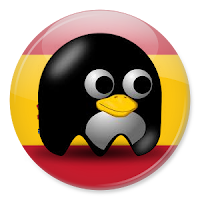You can change your favourites apps in aplications panel editing the file /home/pi/.config/lxpanel/LXDE-pi/panels/panel
Modify the zone with these line at the beginning:
Plugin {
type=launchbarThere must be a content like this:
Plugin {
type=launchbar
Config {
Button {
id=/usr/share/applications/iceweasel.desktop
}
Button {
id=/usr/share/raspi-ui-overrides/applications/pcmanfm.desktop
}
Button {
id=/usr/share/raspi-ui-overrides/applications/lxterminal.desktop
}
Button {
id=/usr/share/applications/kodi.desktop
}
}
}
Here we define like our favorites apps
iceweasel web browser, pcmanfm file explorer, lxterminal and kodi:
You need restart rasbian or at least X server:
sudo /etc/init.d/lightdm restart



